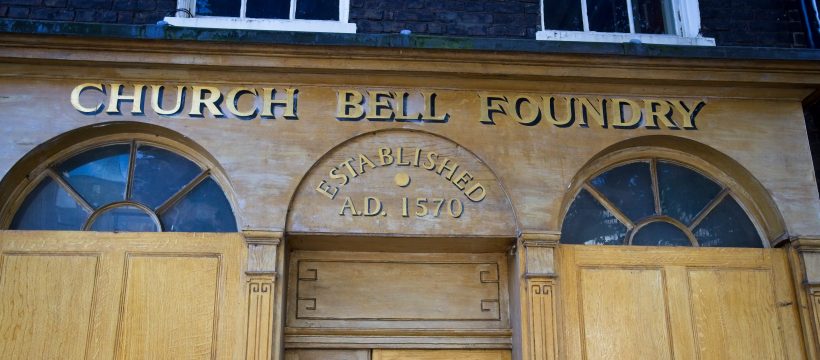Kay Harding wrote in to say that she’d signed the petition to save the Whitechapel Bell Foundry, but wondered what was happening next. I promised to conduct some research.
I started with the Tower Hamlets planning department. Their website can be a bit formidable. My first attempts at searching for the Whitechapel Bell Foundry only produced some ancient planning applications. Then by trying different search phrases I came up with the biggest of the two most recent applications: PA/19/00008/A1. This says Application Validated Wed 02 Jan 2019 at the top. But that doesn’t mean it’s been agreed – it simply means that planning dept. confirm that all the required information has been provided.
The next step is that the Council consult with neighbours and make it publicly available for the people to comment on. They got a lot of feedback with this application! The consultation ended on 14th June. There are 125 comments and 315 documents attached to it.
The Council must now be at the third step of their process – assessment of the application. The final two steps are making the decision on the application (yes/no), then issuing the Decision Notice.
So the short answer the question of what’s happening – is nothing yet. No legal decision. Here’s the text from the top of the planning application.
Part retention of B2 land use (foundry) and internal alterations and refurbishment of listed building to provide new workshops/workspaces (B1 land use) and cafe (A3 land use) at ground floor.
External alterations to listed building to raise roof of hayloft building and create new link building.
Demolition of unlisted 1980s building and wall to the rear. Erection of building along Plumbers Row and Fieldgate Street with hotel (C1 use) with ancillary members and guest uses in part 5, 6 and 7 storeys with x2 levels of basement, with restaurant/bar (A3/4 uses) at ground and mezzanine level and additional workspace (B1 use) on ground and first floors. Roof plant, pool, photovoltaics, waste storage, cycle parking, public realm improvements and associated works.
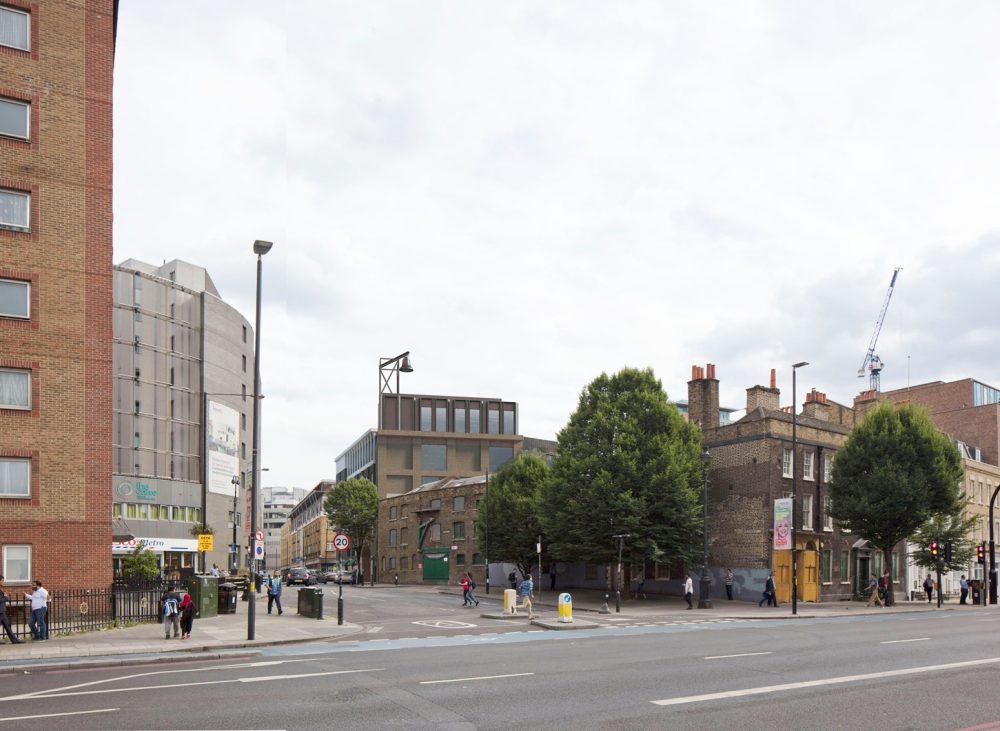
As you can see from the renderings above and below by 31/44 Architects the new hotel is way down the side street.
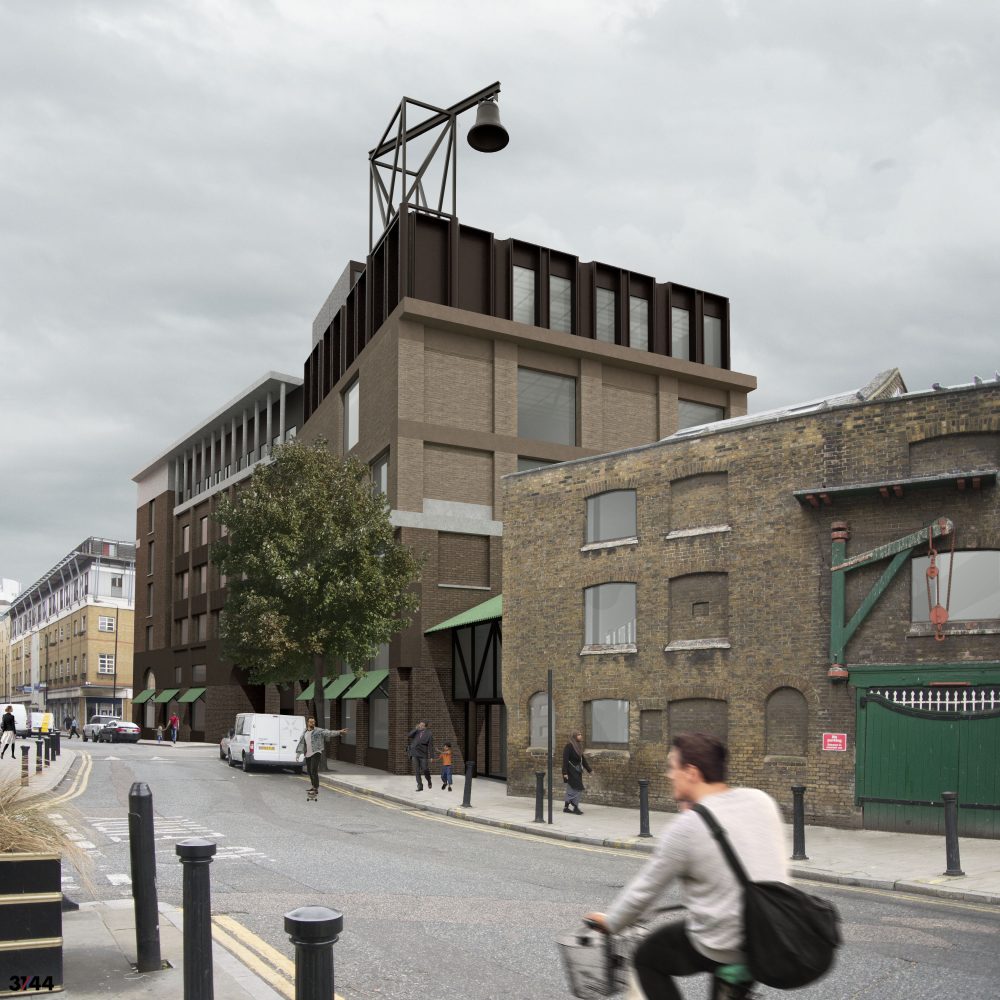
The older buildings remain mostly looking as they are. On the ground floor there is a great deal of public access. The hotel has a link to a cafe at the back of the ground floor of the old building, which also houses a small “working foundry”, presumably for handbells, and a “handbell tuning and finishing workshop”. Behind the public entrance on Whitechapel Road (below) there will be a Foundry Showcase.
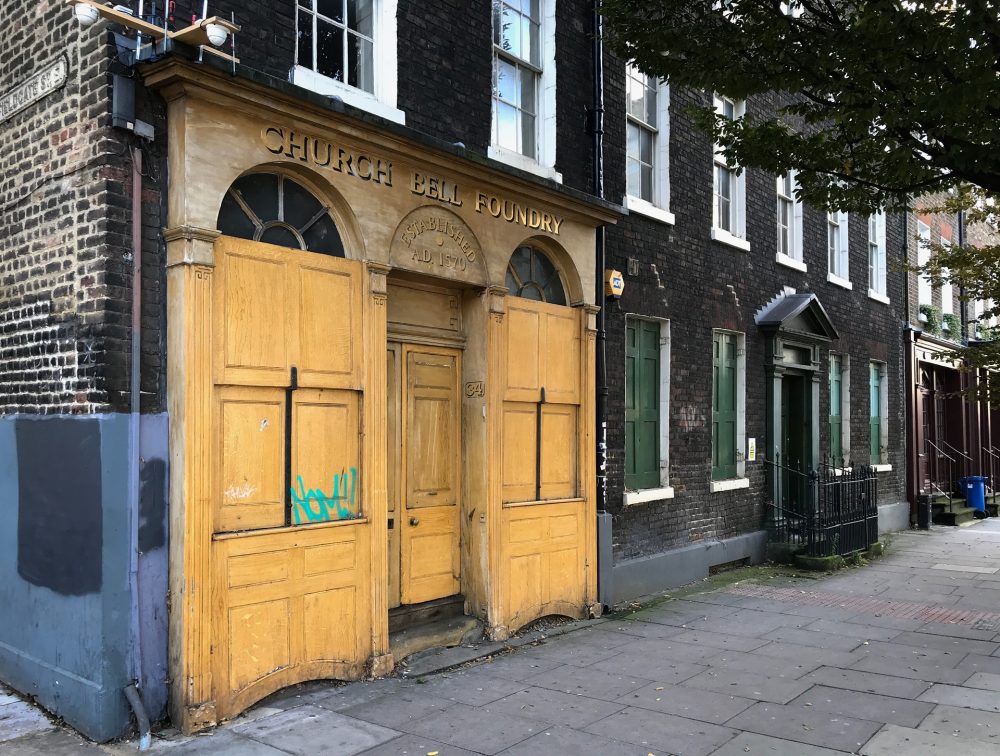
A brief history of Whitechapel Bell Foundry
The foundry was established back in 1570 and had been at it’s present site since probably about 1745, according to the Survey of London. It replaced the Artichoke Alehouse. The bell foundry closed in June 2017 and the site was sold. The bell patents were sold to the bell-hanging company, Whites of Appleton, who had been working with the foundry for almost 200 years. The rights to tower bell production are now under the ownership of Westley Group Ltd – big bells will continue to be made near Stoke on Trent. A rival company in Britain also make bells: John Taylor and Co in Loughborough.
In a press release dated April 2017 Whitechapel Bell Foundry said: “After years of struggling against economic pressures and the high cost of maintaining the listed premises, current directors, Alan and Kathryn Hughes, have taken the decision to sell the premises and to redistribute the business in order to ensure the continuation of its products into the future. Both in the UK and worldwide, the demand for church bells has declined year on year while the costs of employment and keeping up with manufacturing legislation and insurances have continued to rise. The buildings are in need of extensive upgrading, with estimated costs upwards of £8m.
“Whitechapel musical handbells and the supplies of supporting music and accessories will be available to purchase from Bells of Whitechapel Ltd, along with the entire range of Whitechapel presentation bells, door bells, bracket bells and ships bells, all of which will continue to be cast and finished in London.”
The bell foundry archives will be held by the London Metropolitan Archives and will be available to the public for research.
An old version of the foundry website has been thoughtfully posted online.
The Petitions
The Tower Hamlets council petition to save Whitechapel Bell Foundry closed on 13th Sept 2019 with 2,238 people signing to say ”…We are petitioning the Council to actively oppose the loss of, and to preserve, the Whitechapel Bell Foundry. … We petition the Council to investigate and commit to actions to preserve the Whitechapel Bell Foundry as a working foundry.”
The Change org petition said: “We are very concerned that we will lose not only specialized jobs and skills, but that this type of business and trade is part of the historic essence of our towns and cities. How is Britain allowing this national treasure to slip through our fingers?”
The Planning Application
The job of Tower Hamlets council is to assess the planning application which has been sent to them by Raycliff Whitechapel LLP, the developers.
Among the documents is a letter from Historic England, dated 23rd Sept 2019. A couple of excerpts are below:
“Historic England has supported this application … because we believe the proposals represent a positive, conservation-led approach that safeguards the architectural significance of the listed buildings on site while providing them with new uses and a long term sustainable future. Whilst the loss of archaeological remains would cause some harm, the development would also provide heritage benefits to offset that harm. On this basis Historic England continues to support the current application.
“The back foundry appears to date from the mid 19th Century. It was damaged in the Blitz, and rebuilt in the 1980s. Since it was also used as a foundry Historic England think: “The buried foundry remains are not designated heritage assets and it is our view that there is a low potential that any further buried remains at the site would be of sufficient importance to merit designation. We conclude this because these structures are a remnant of a foundry building otherwise demolished 40 years ago.”
Their letter is backed up by a 141 page archaeological survey from Compass Archaeology.
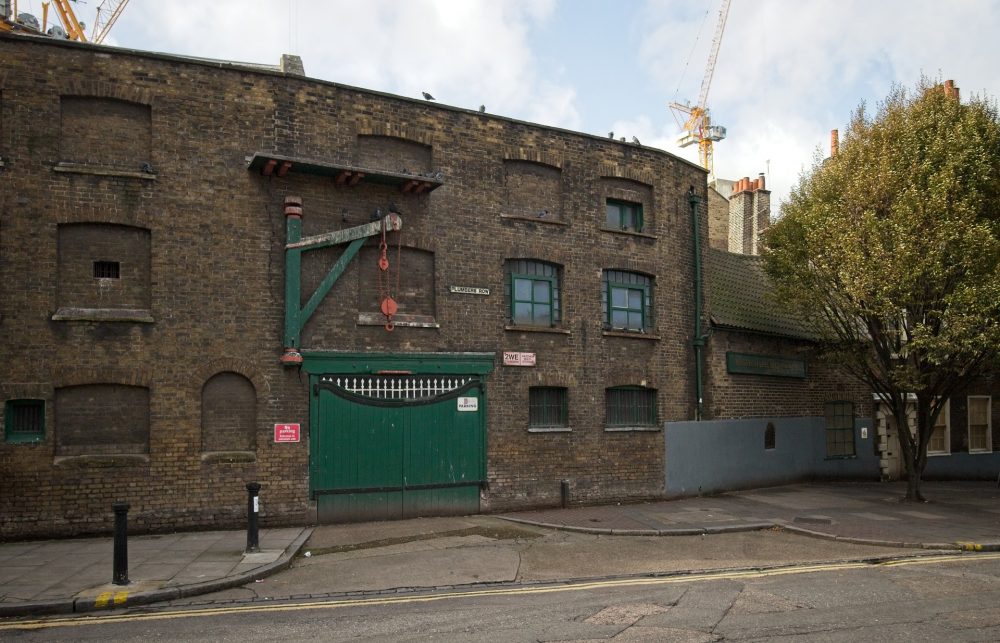
This application is now awaiting a decision from Tower Hamlets planning department.
Additional Information
Whitechapel Bell Foundry Ltd is still in business. They are running a foundry on an industrial estate in SE London that casts small bells, and the larger tower bells are produced under licence by the Westley Group.
Will Burgess of 31/44 Architects contacted me to say: “The first crucial message is that the listed Whitechapel Bell Foundry will not in any part be a hotel! (The hotel is all located on an adjacent site).
“We do feel that it has been quite misrepresented – the Foundry will be a remarkable addition to Whitechapel’s public life. The only non-industrious use within the listed building is a public cafe – this ensures a level of public access throughout each day. The fact that the houses to the street are still connected to the industrial spaces to the rear is unique (we believe) and it should be a visitable site.”
Will sent me a later email to say that the bell foundry relocated their business from the historic building because it was becoming very difficult to maintain – but the business is very much still running.
To the frustration of the owners, the campaign to save the foundry has made it look like their business needs saving. Will said: “The foundry our team are proposing will be run through a partnership between the Westley Group and AB Fine Art (from Poplar). They will collectively be using the foundry to cast smaller bells (up to 30cm in diameter) and also an art foundry. The foundry will be open for use by the on-site artists from the affordable (as designated by the GLA) studios on the upper floors of the historic building. It should make an interesting mix – maintaining bell founding skills with an apprenticeship scheme alongside/in partnership the art founders.”
The plans will now go to the Tower Hamlets Development Committee on Thurs 14th Nov. Please see my next article here.
Update 15th Nov 2019: Tower Hamlets Council have approved the plans. Read more on the BBC.
Alan Tucker


